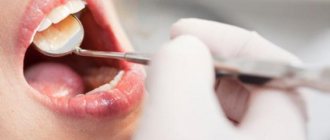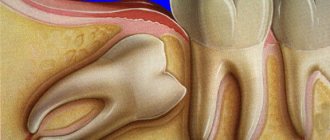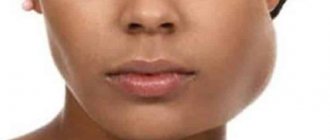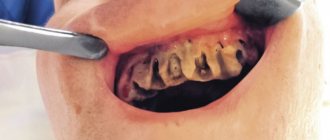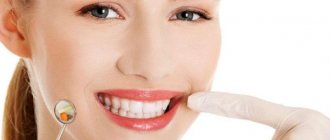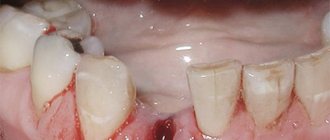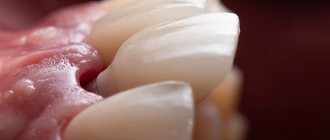Swelling of the lips can develop not only for physiological reasons such as an insect bite, dental treatment under anesthesia, but also pathological - erysipelas, herpes, allergic reaction, dental diseases. At home, you can help with an ice cube, parsley decoction, baking soda slurry, and antihistamine tablets.
But if the swelling spreads quickly, the person’s condition worsens, or there is no positive dynamics when using different methods for 2 days, then you should immediately consult a doctor.
Treatment will be prescribed taking into account the reason for the swelling of the lips - antibacterial, anti-inflammatory drugs, glucocorticosteroids, antihistamines, antivirals.
Harmless problems that cause lip swelling
Swelling of the lips, as a rule, occurs spontaneously, and often such a change in appearance can be explained by physiological, harmless reasons:
- a bite of an insect;
- too hot kisses;
- pimple formation;
- carrying out a cosmetic procedure the day before;
- dental treatment under anesthesia;
- drinking too much liquid before bed.
Such swelling is short-lived and disappears without medical intervention. You can speed up the restoration of the appearance and shape of your lips using folk remedies.
Because of kisses
Swelling of the lips often occurs due to kissing, because during them:
- there is strong pressure on the skin - in the lip area it is thin and sensitive;
- capillaries receive microdamage - small blood vessels in this area of the face are located as close as possible to the upper layer of the dermis;
- nerve endings are subject to severe irritation;
- During the process, the partner bit his lips.
The swelling may also spread to the area around the mouth if the kissing was prolonged and too intense.
From the bite
Swelling may appear at the site of an insect bite when a person bites his own lip. In this case, the swelling will be accompanied by pinpoint hemorrhages directly at the site of the bite/bite, and mild pain may be bothersome.
If the bite was caused by a wasp or a bee, then at the site of damage you can find the sting left by the insect. It should be removed quickly to prevent an inflammatory process from developing.
Because of a pimple
A pimple may form not on the lip, but next to it. Its growth will certainly lead to swelling of the surrounding soft tissues, so the lips will become enlarged, may acquire a red tint and be hot to the touch.
Swelling due to acne is characterized by deformation of the lips, swelling is observed only on one side.
Swollen after cosmetic procedures
If cosmetic procedures were performed on the face the day before, then the reason for the swollen lip may be:
- incorrect manipulation technique;
- violation of antiseptic rules during the procedure;
- individual reaction to external influences;
- carrying out the procedure in unsanitary conditions.
After tooth treatment
Dental treatment carried out the day before can also cause lip swelling if the dentist used anesthesia during his work. During the injection, a small vessel may be damaged, the needle could enter a nerve ending, and soft tissues also do not always respond equally to painkillers. In the latter case, the swelling can be associated with the body's individual reaction to the administered drug.
The morning after sleep
If swelling of the lip is noted in the morning, this may be due to:
- drinking a large amount of liquid the night before - the swelling will spread to the face, there is also swelling of the fingers;
- uncomfortable sleeping position - if the lips were subjected to pressure while resting, then swelling can be caused by a temporary disruption of blood flow.
The listed causes of lip swelling do not pose a threat to human health and life, and do not require the use of medications or a medical examination to identify hidden internal pathologies.
1.What is urticaria and its causes?
In hives, light red, swollen blisters
. Usually, hives are the result of an allergic reaction, but sometimes hives appear for other reasons. The name urticaria, or nettle fever, appeared because the blisters look very similar to burns from the most common nettle.
Hives usually cause itching
, but sometimes it is accompanied by
a burning sensation on the skin
. Rashes and blisters can appear on any part of the body, even on the face, lips, tongue, throat or ears. The affected area of skin can be any size - from a few millimeters to the size of an ordinary plate. Redness and swelling with urticaria go away over varying periods of time - from several hours to several weeks.
There is another condition somewhat similar to urticaria - Quincke's edema
. But in this case, the tumor begins under the skin, and not on its surface. With angioedema, deep swelling begins around the eyes and lips, and sometimes the genitals, arms and legs. Typically, angioedema resolves in less than 24 hours. In very rare cases, angioedema in the throat, tongue, or lungs can block the airway and cause breathing problems. And then it becomes life-threatening.
Why do urticaria and Quincke's edema appear?
Urticaria and angioedema develop when blood plasma leaks from small blood vessels in the skin in response to histamine production. Histamine is a chemical that is released from special cells located in these vessels. The production of histamine can be caused by a variety of factors - allergies, chemicals from food, exposure to sunlight, medications, insect bites. There are quite a few factors for the appearance of urticaria, and therefore it is not always possible to accurately determine its cause.
A must read! Help with treatment and hospitalization!
Why did swelling of the upper lip occur, reasons if the lower lip
The cause of swelling of the upper and lower lips is often mechanical damage due to an impact or bruise. In this case, the swelling will be accompanied by other accompanying symptoms:
- pain directly at the site of injury;
- hematoma – can be extensive with severe trauma or localized;
- numbness, loss of sensitivity;
- discomfort while eating, swallowing saliva and talking.
If the swelling is accompanied by an increase in body temperature, the pain syndrome becomes more intense, and the ability to make simple movements of the jaws is lost, then this may indicate the beginning of an infectious process in the damaged soft tissues.
Manifestations
Swelling of the lips will certainly not go unnoticed, because in such a situation this part of the face will increase in size and swell. Other symptoms may also occur, such as redness and flushing (a localized increase in body temperature), peeling, burning or itching, cracking, rashes or blisters.
Sometimes manifestations affect not only the lips, but also extend beyond them and spread to the area around the mouth. Also, in some cases the oral cavity may be involved in the process. And sometimes there is a deterioration in the general condition: difficulty breathing, weakness, body aches and fever.
The lip swells for no apparent reason at first glance
Swelling of the lips never forms without a reason, you just need to find it - analyze the actions the day before, rule out colds, dental diseases, and allergies. If the listed provoking factors are excluded, then it is worth seeking qualified medical help to rule out herpes, inflammatory processes and rare diseases that occur without severe symptoms.
For colds
Herpes
When you have a cold, the immune system weakens, so chronic pathologies immediately enter the acute stage. These include herpes, which most often appears on areas of the face and body with loose connective tissue, just like that present in the lips. The swelling is accompanied by itching, a burning sensation, and on the 2nd day from the onset of symptoms, rashes form in the form of small blisters with liquid contents.
Swelling can be increased by elevated body temperature and constant drying of the skin of the lips due to thirst.
Stomatitis, complicated caries
Stomatitis
Any dental disease can also cause swelling of the lips:
- stomatitis – ulcers form on the oral mucosa;
- complicated caries – pulpitis, periodontitis, accompanied by severe toothache;
- inflammation of the gum tissue - they become red, aching pain bothers you.
Allergy
If the allergic reaction develops rapidly and a rapidly growing swelling of the lips is noted, then we are talking about Quincke's edema.
This condition is life-threatening, so medical attention must be provided immediately. Allergic swelling can be provoked by:
- insect bites;
- eating hyperallergenic foods;
- some medications;
- decorative and care cosmetics.
The process is accompanied by itching and numbness. In especially severe cases, suffocation and hoarseness occur.
Erysipelas
The cause of erysipelas is beta-hemolytic streptococcus, so this disease will be characterized by both local and general symptoms. The first include:
- skin redness;
- swelling of the lips, quickly spreading to the entire face;
- severe pain syndrome;
- clear definition between inflamed and healthy areas of the skin.
Swelling may be present in other parts of the body, with the lower extremities most often affected. Before the characteristic swelling appears, general symptoms are disturbing: headache, severe weakness, high body temperature and chills.
Rare diseases
Swelling of the lips can also be a symptom of rare diseases:
- Meige's trophedema is a hereditary disease that progresses at a young age, manifested by periodic swelling of the lips (disappears after 2-3 hours), numbness of swollen areas of the skin, excessive fatigue, and weakness.
- Melkersson-Rosenthal syndrome is characterized by a triad of symptoms: swelling of the upper lip, neuritis of the facial nerve and “folded” tongue.
These pathologies are diagnosed in isolated cases, but if other probable causes and provoking factors are excluded, then it is worth undergoing an in-depth examination.
How to remove swelling from lips
Cold compress
If swelling of the lips occurs suddenly, it is not possible to see a doctor immediately, then you can relieve it with folk remedies:
- Aloe juice. You need to take the bottom leaf of the plant, remove the skin from it, and “extract” the juice from the pulp. Soak a cotton pad in this juice and apply it to the swollen area for 30 minutes. The procedure should be repeated frequently, every 20-30 minutes, until the swelling becomes less pronounced.
- Baking soda. It is diluted in water at room temperature in equal proportions - the “output” should be a paste without lumps. It is applied in a thick layer to the swelling and left for 10-15 minutes, then washed off with cool water. The procedure is repeated every hour, the number is unlimited.
- Parsley decoction. Take 1 tablespoon of parsley seeds for 1 glass of water and boil the mixture in a water bath for 5 minutes, then cool and filter. A cotton pad is moistened in the finished product and applied to the lips as often as the lotion dries quickly.
- Plantain. Fresh leaves of the plant are used, they are picked and crushed into pulp. The finished mass is applied to the swelling for 20 minutes, then washed off with cool water. The procedure can be repeated once every 2 hours.
The simplest and most effective action for sudden swelling of the lips is to apply ice, a towel soaked in cold water, or a frozen product to the problem area. The cold compress should be on the skin for no more than 5 minutes in a row, then you should take a break in the procedure for 10 minutes and you can repeat the manipulation.
You can also use diuretic herbs:
- chamomile and bearberry;
- rose hips and nettles;
- milk thistle and black currant leaves;
- tansy and flax seeds.
Decoctions are prepared from them at the rate of 1 tablespoon per 250 ml of water, boiled in a water bath for 5 minutes, cooled to room temperature and filtered. Take 50-70 ml 3-5 times a day. It is strictly forbidden to use herbs with diuretic properties for:
- nephrosis;
- diabetes mellitus;
- urolithiasis;
- gout;
- renal failure;
- diagnosed zinc and calcium deficiency.
What will help quickly eliminate the tumor with ointment?
Some ointments are also effective against lip swelling:
- Fluorocort;
- Flucinar;
- Prednisolone;
- Sinalar.
They have a complex effect on the pathological focus - they stop the inflammatory process, have an antihistamine effect, and eliminate itching. Apply a thin layer, the procedure is repeated 2-3 times a day. Doctors allow the use of these medications only if there are no contraindications to them.
How to remove a hickey on the chest, neck
Immediately after the formation of a hickey, applying snow, ice and other cold helps effectively. After all, professional athletes eliminate hematomas using the freezing method. But such a decision has negative consequences. It is quite possible to catch a cold in the neck; exposure to cold on the chest is strictly not recommended. How to quickly get rid of a hickey, removing it on the neck worries many; using natural folk remedies such as garlic and onions will be effective. It is recommended to treat the hickey area with onion juice or a clove of garlic; the result will be favorable, although there are still negative aspects. The rubbed area may become irritated, and the main disadvantage is the pungent odor present after the procedure. Often, hickeys on the body appear as a result of unpredictable strong and passionate kisses, so you need to know how to kiss correctly and there will be no such problems and minor troubles.
Ointments that have a similar effect:
You cannot use these topical medications to solve the problem of how to remove a hickey from your lips - these medications are not recommended for use internally. If there is a bruise on the lips, apply ice or something cold to them.
By the way, if you apply ice to the skin immediately after a passionate kiss, the mark will remain very weak or not appear at all.
Traditional medicine
Here are the main “grandmother’s” ways to get rid of a hickey at home:
A compress with vinegar won’t hurt, but don’t expect a miracle—it won’t work quickly. Therefore, when choosing a way to get rid of a hickey on your neck, keep in mind that the hickey will be visible for at least two days, and in some cases it can be removed only after a week. But despite the fact that the neck is usually open, it is possible to disguise a hickey. If it is not too bright, use foundation, but the tone should be lighter than the one you apply to your face. If foundation does not solve the problem, wear blouses, shirts and sweaters with high collars, complain about a sore throat and tie a scarf around your neck.
It is easier to deal with the problem for those who have at least a couple of hours to solve it. For example, onions have a powerful absorbent effect: just cut the onion and apply a fresh cut to the hickey. Garlic has similar properties. But keep in mind that an unpleasant consequence of using this drug is a strong onion or garlic smell, so leave time for a swim.
No time to shower? Then we use potatoes as a folk remedy for hickeys. We cut it into thin strips and apply it to the hematoma. The slices will have to be changed every half hour, but very soon the hickey will disappear and become almost invisible. By the way, a historical fact: it was with the help of potatoes that loving hussars hid traces of passion...
Having studied traditional methods for getting rid of hickeys, it may seem that they are ineffective and only pharmaceutical products can help. That is why those with hickeys often combine removing the hickey with disguising it.
But what is better: to mask, treat, or use a combined option for removing hickeys - everyone decides for themselves.
My lip is swollen, what should I do if my lip is swollen? traditional medicine treatments.
Are you going to the theater today and your lip is swollen? Have you slipped, hit a table and your lip is swollen? Then this article is just for you.
What causes a swollen lip?
Before taking any measures, you should understand the cause of the incident. It can be:
- inflammation caused by bacterial infection or viruses (herpes, ARVI, stomatitis);
- allergic reaction to dust, wool, cosmetics, food or other irritants;
- various lip injuries (cut, bruise, scratch, squeezed pimple).
What to do if your lip is swollen?
- When the cause of swelling is an infection, all kinds of antiseptics are applied to the damaged area. If a person is sure that he has herpes, it is necessary to apply antiviral ointments, and try to start treatment as early as possible.
- If an allergic reaction occurs, an antihistamine is taken, and the swollen area is lubricated with a disinfectant gel or ointment.
- In case of a cut or scratch, you need to disinfect the wound by treating it with 3% hydrogen peroxide to prevent suppuration in the tissues, then lightly lubricate its edges with iodine.
- For injuries and bruises, a cold compress is effective: ice cubes wrapped in a towel are applied to the injured lip for no longer than 10-15 minutes. After this, the pain should subside and swelling should decrease. If this does not happen, the pain increases, the lip swells more and more, you should immediately seek help from a doctor.
- Antiherpetic ointments (Zovirax, Acyclovir). The swollen area affected by the herpes virus is treated with ointment up to 5 times a day.
- Antiallergic tablets - relieve inflammation and pain, soothe, reduce muscle tone (Suprastin, Diphenhydramine, Diazolin, Claritin).
- Antiviral tablets (Remantadine, Tamiflu, Arbidol, Viburkol, Oscillococcinum).
- Immunostimulants, immunomodulators (Ribomunil, Imudon, Imunal).
Antiseptic solutions and ointments - applied to the affected area of the lip for disinfection 2-3 times a day (Chlorhexidine, Actovegin, Miramistin, essential oils). After treatment, it is recommended to stick a sterile adhesive over the wound.
Surgical intervention is required if an infiltrate with pus or an abscess forms. The doctor will open the abscess under local anesthesia, clean the cavity, apply antibacterial ointment and an aseptic dressing.
Recommendations
In case of lip swelling, in order to avoid complications, it is recommended:
- give up cigarettes and alcohol;
- if you have a habit of biting your lips and touching them with your hands, try to get rid of it;
- protect the lip from direct sunlight;
- avoid kissing;
- eat fortified foods;
- See a doctor if symptoms do not subside.
If your lip is cracked and swollen. This can happen due to a lack of vitamins, skin dehydration, and temperature changes. To moisturize and heal the wound, lubricate it throughout the day with various oils heated to body temperature. At night, lubricate your lips with a thick layer of honey or rich cream.
Nutrition and diet
Be sure to drink enough water. Pay attention to your diet; it should consist of:
- legumes;
- raw vegetables and fruits (carrots, apples, herbs);
- liver, meat;
- seafood and fish.
Lip cancer may appear as an ulceration or small tumor. The disease is provoked by constant mechanical injuries, smoking and other factors. If lip cancer is diagnosed in time, then after surgery and radiation therapy the person’s performance is completely restored.
Folk remedies that have been tested by time and dozens of generations will help you.
Use cold or hot compresses. This can easily be done at home: take a couple of ice cubes, wrap them in a handkerchief and apply them to your swollen lip. If you don't find any ice, don't be discouraged. Use a spoon and place it in the freezer for a couple of minutes. Apply it to your swollen lip. If you don’t have a refrigerator or you are at your dacha, you can try a hot compress. Apply a towel soaked in warm or hot water to the damaged lip for ten minutes. Heat reduces swelling and improves blood flow to the injured area.
Lip swelling: causes and treatment
Drug treatment for lip swelling depends on what causes this condition:
- Quincke's edema. Home methods will not help; you should immediately seek qualified medical help. Doctors use antihistamines (Suprastin, Zyrtec); in especially severe cases, a decision is made to intravenously administer glucocorticosteroids such as Prednisolone, Dexamethasone. In case of airway obstruction, the ambulance team administers adrenaline.
- Traumatic injury. Therapy will depend on the degree of injury; doctors prefer Solcoseryl gel, Miramistin ointment, Chlorhexidine solution for treating the wound (if there is an open one). If the wound is deep and there is no positive dynamics for 2 days, sutures may be necessary.
- Herpes. Antiviral drugs Gerpevir, Acyclovir, Zovirax are prescribed. Ointments are applied 5-6 times a day in a thin layer, the course of therapy is at least 5 days, even if the swelling has disappeared.
- Erysipelas. Antibacterial agents are used - Amoxicillin, Erythromycin. Additionally, bandages are applied with a solution of furatsilin or chlorophyllipt, and methyluracil ointment is used to speed up healing.
- Inflammation, purulent processes in the oral cavity. Treatment at home is unacceptable; the dentist will sanitize the oral cavity and prescribe antibacterial agents, if necessary.
Prevention measures
You can prevent the formation of lip edema by following the preventive recommendations of specialists:
- strengthen the immune system - adhere to proper nutrition, avoid stress and emotional outbursts, exercise regularly and moderately;
- make a choice of a cosmetologist and dentist, taking into account not only the prices for their services, but also the reputation of the clinic, the availability of certificates, and customer reviews;
- if there is a wound on the lip, then do not touch it with dirty hands;
- If you have allergies, choose decorative cosmetics and skin care products with special care;
- avoid hypothermia or overheating;
- drink enough water every day - at least one and a half liters per day;
- include in your diet foods rich in vitamins B6, B12, and C;
- after cosmetic manipulations, follow all instructions and recommendations of the doctor who performed the procedure;
- undergo medical examination at least once every 12 months to exclude hidden internal pathologies.
Swelling of the lips may indicate the development of serious pathologies, so if it begins suddenly and spreads rapidly or does not disappear even after therapy, you should seek qualified medical help. Complete treatment of the disease that caused lip swelling will give the desired result.
